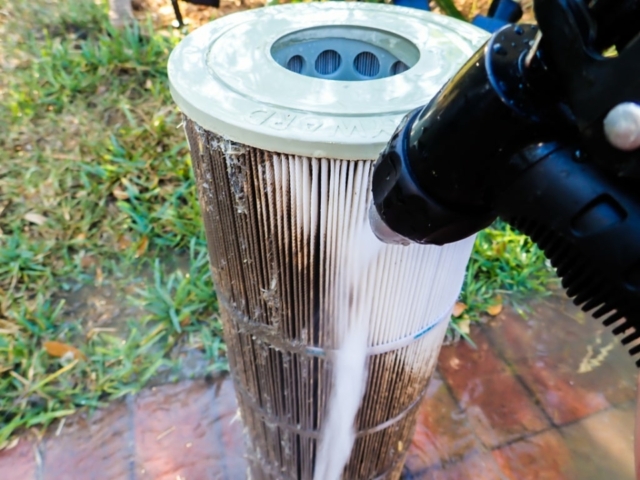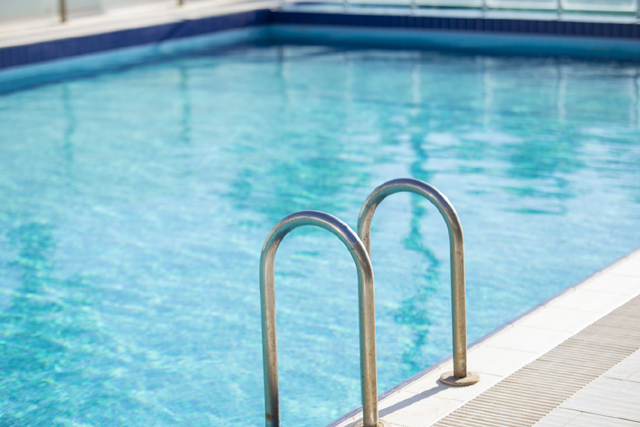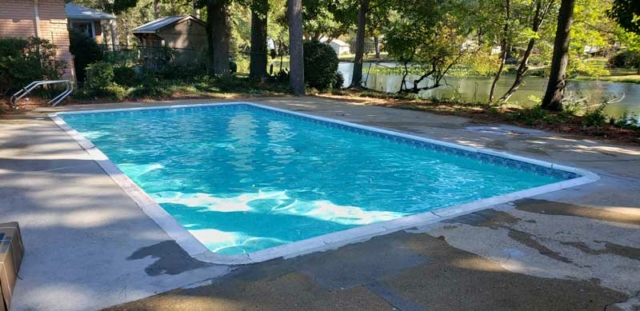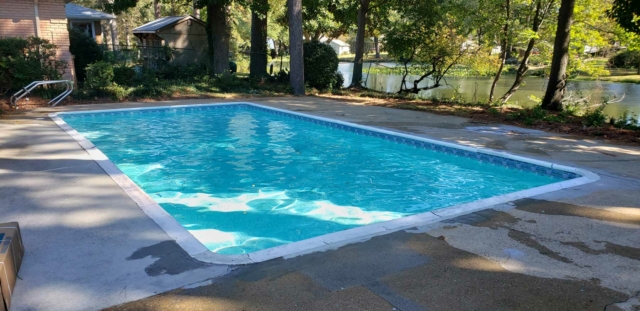Pool Pumps: The Heart of Your Pool
Picture this: a hot, sunny day, the sound of laughter in the background, and the enticing coolness of a swimming pool beckoning you to take a refreshing dip. Your pool is a haven of relaxation, but have you ever stopped to consider the unsung hero that makes it all possible? Enter the pool pump, a vital component that ensures your pool remains crystal clear, healthy, and ready for endless summer fun. In this comprehensive guide, we will embark on a journey into the world of pool pumps, shedding light on their significance, types, common issues, and the expert solutions provided by Fox Pools.

The Lifeblood of Your Pool: Demystifying Pool Pumps
Pool pumps are the unsung champions of pool maintenance. They serve as the heart of your pool’s circulation and filtration system, working tirelessly to keep the water clean, safe, and well-maintained. To put it simply, a pool pump is responsible for:
-
Circulation: Pool pumps circulate water from your pool, through the filter, and back into the pool. This continuous flow helps distribute chemicals evenly, preventing the water from becoming stagnant.
-
Filtration: The pump drives water through the pool’s filtration system, where debris, dirt, and impurities are trapped and removed. This process is essential to maintain water clarity and quality.
-
Chemical Distribution: Pool pumps ensure that chemicals, such as chlorine or pH balancers, are evenly distributed throughout the pool, preventing algae growth and bacteria buildup.
-
Water Temperature: In some cases, pool pumps can also be used to circulate water through heating systems, helping to maintain a comfortable swimming temperature.
Types of Pool Pumps
Pool pumps come in various types, each with its own set of advantages and considerations. The most common types of pool pumps include:
Single-Speed Pool Pumps
Pros:
- Affordable: Single-speed pumps are typically the least expensive option.
- Simplicity: They are easy to install and operate.
Cons:
- Energy Inefficient: These pumps run at a constant, high speed, consuming more energy than necessary.
- Limited Control: You have minimal control over the water flow rate, potentially leading to excessive filtration.
Dual-Speed Pool Pumps
Pros:
- Energy Savings: Dual-speed pumps offer the flexibility to run at a lower speed when high circulation is not needed, reducing energy consumption.
- Improved Efficiency: They strike a balance between performance and energy savings.
Cons:
- Higher Cost: Dual-speed pumps are more expensive than single-speed pumps.
Variable-Speed Pool Pumps
Pros:
- Maximum Efficiency: Variable-speed pumps provide precise control over the flow rate, offering significant energy savings.
- Quiet Operation: They run quieter than single and dual-speed pumps.
Cons:
- Higher Initial Cost: Variable-speed pumps tend to have a higher upfront cost.
Common Pool Pump Issues
Pool pumps, like any mechanical equipment, can experience issues over time. Recognizing these issues early is essential to prevent more extensive damage. Here are some common pool pump problems:
1. Strange Noises
Unusual noises like grinding, rattling, or squealing can indicate worn-out bearings, debris stuck in the impeller, or a misaligned motor shaft.
2. Leaks
Water leaks around the pump housing or plumbing connections may result from damaged seals, gaskets, or loose fittings.
3. Loss of Prime
If your pool pump loses prime, it means it’s unable to maintain the necessary suction to keep water flowing properly. This can be caused by a clogged strainer basket, an air leak in the suction line, or a malfunctioning pump lid o-ring.
4. Low Flow Rate
A decrease in water flow can be due to a clogged impeller, a blocked filter, or a malfunctioning motor. Low flow rates can result in poor water circulation and inadequate filtration.
5. Motor Issues
If the pool pump motor won’t start, overheats, or frequently trips the circuit breaker, it indicates electrical or motor problems that require attention.
DIY vs. Professional Pool Pump Repair

When faced with pool pump issues, homeowners often wonder whether to attempt a DIY repair or seek professional assistance. The choice depends on your comfort level with pool equipment and your understanding of electrical systems.
DIY Pool Pump Repair
Pros:
- Cost-Effective: DIY repairs can save on service fees.
- Immediate Action: You can address minor issues as they arise.
- Learning Opportunity: DIY repairs can help you gain knowledge about your pool system.
Cons:
- Safety Risks: Working with electricity and water can be dangerous if not done correctly.
- Limited Expertise: Complex issues may be beyond your DIY capabilities.
- Voided Warranty: DIY repairs might void your pump’s warranty.
Professional Pool Pump Repair
Pros:
- Expertise: Professionals have the knowledge and experience to diagnose and fix a wide range of pump problems.
- Safety: Trained technicians ensure that repairs are done safely and according to industry standards.
- Warranty Preservation: Professional repairs typically do not void your pump’s warranty.
Cons:
- Cost: Professional repairs may have a higher upfront cost.
- Scheduling: You may need to wait for an appointment, especially during peak pool season.
Fox Pools: Your Trusted Pool Pump Repair Partner
Choosing the right partner for pool pump repair is crucial to the health and longevity of your pool. Fox Pools stands out as your trusted ally for several reasons:
1. Expertise
Our team of technicians at Fox Pools boasts years of experience in the pool industry. They undergo rigorous training to stay updated with the latest technologies and repair techniques, ensuring your pool pump receives top-notch care.
2. Safety First
Safety is our paramount concern. When you choose Fox Pools, you’re opting for a company that adheres to strict safety protocols to protect you, your loved ones, and your property during the repair process. Our technicians are trained to handle electrical components and water systems with the utmost care.
3. Efficiency
We understand that a malfunctioning pool pump can disrupt your pool enjoyment. That’s why we strive for swift and efficient repairs. Our team works diligently to get your pool pump back in working order promptly.
4. Warranty Protection
Opting for Fox Pools ensures that your manufacturer’s warranty remains intact. Our technicians follow industry standards, and we use genuine replacement parts to maintain your pump’s warranty.
5. Customer Satisfaction
At Fox Pools, we take pride in our commitment to customer satisfaction. Our friendly and knowledgeable staff are always ready to answer your questions and provide guidance on pump maintenance and care. We believe that a well-informed pool owner is a happy one.
Contact Us Today

Your pool pump is the lifeblood of your pool, responsible for maintaining water quality, clarity, and safety. When issues arise, whether it’s strange noises, leaks, or loss of prime, don’t hesitate to reach out to the experts at Fox Pools.
While DIY repairs might be tempting, they carry risks and limitations. Professional pool pump repair ensures your safety, preserves your warranty, and provides peace of mind. Contact us at Fox Pools today to get started.








